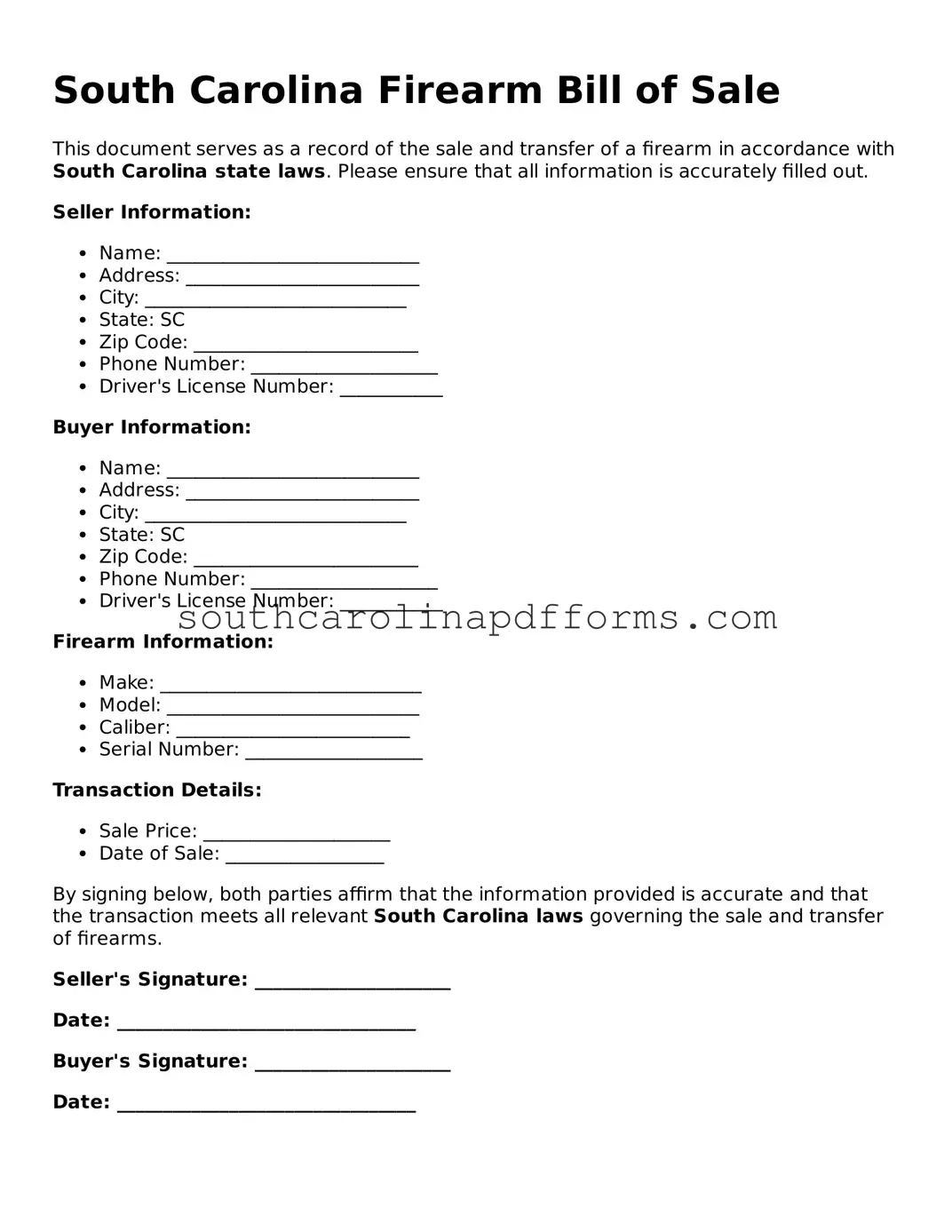Attorney-Approved South Carolina Firearm Bill of Sale Document
The South Carolina Firearm Bill of Sale form serves as a legal document that records the transfer of ownership of a firearm between two parties. This form not only protects the interests of both the seller and the buyer but also ensures compliance with state laws regarding firearm transactions. Understanding its importance can help facilitate a smooth and lawful exchange.
Access Firearm Bill of Sale Here
